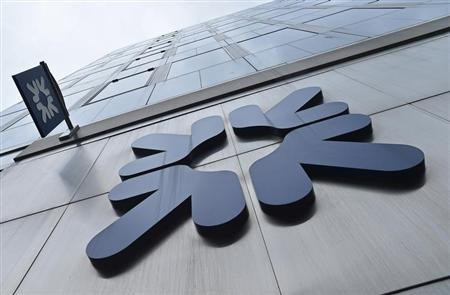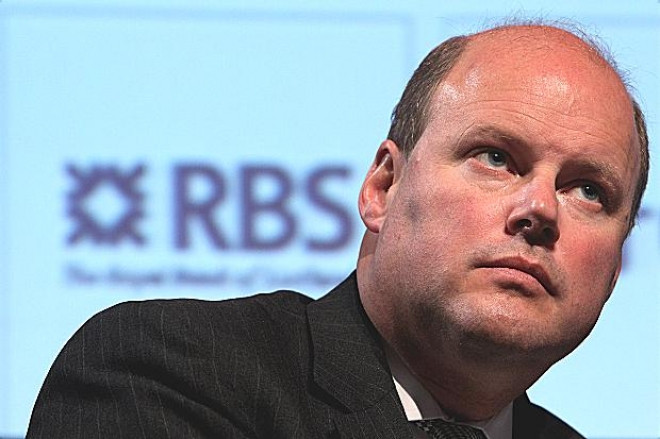Top 12 Business Stories 2013: RBS Battles for Credibility amid Numerous Scandals

All banks have been hit, in one way or another, by a raft of financial scandals but none more so than the Royal Bank of Scotland in 2013.
The 81% state-owned group has arguably had one of the most turbulent years in recent history as it battles for credibility amid myriad legacy problems.
In February, RBS became the third major bank to settle with the Commodity Futures Trading Commission (CFTC), Department of Justice (DoJ) and Financial Conduct Authority (FCA) for £390m relating to civil and criminal charges.
RBS subsidiary, RBS Securities Japan Limited, also pleaded guilty to one criminal charge of wire fraud. It has since been forced to overhaul its compliance measures.
In the immediate aftermath, RBS sacked a number of traders and investment banking chief John Hourican, who took full responsibility for the Libor misconduct, despite having "no involvement, knowledge or culpability" for the 21 traders' actions.
(Although he didn't do too badly, considering he has now been made CEO of the Bank of Cyprus).

However, while RBS's chief executive Stephen Hester clung onto his position for dear life, the group's chairman Philip Hampton, and reportedly the government, ousted him in June.
But it wasn't plain sailing for the new CEO Ross McEwan.
Since then, the bank has had to battle with allegations that the bank engineered businesses into default while profiting from their struggles.
According to government adviser Lawrence Tomlinson, RBS pushed businesses into default after moving them into its Global Restructuring Group unit, the business which manages the bank's riskier loans.
Since then, reports have surfaced that the Serious Fraud Office and the City of London police are looking into the allegations.
McEwan hit back and denied the bank committing any wrongdoing.
However, it doesn't stop there.
After the Tomlinson furore, RBS, Natwest and Ulster Bank customers were hit by an online banking and ATM blackout which left potentially millions unable to pay for goods and services or receive payments.
To make matters worse, only a day after it said to have resolved problems, NatWest customers were hit by more internet banking issues after a cyber-attack knocked the bank's website down for an hour.
A week later, Ulster Bank customers were stung by another IT glitch.
Meanwhile, in the season to be proverbially jolly, Group Finance Director Nathan Bostock, who had only been in the role for ten weeks, revealed that he was resigning from the bank and will join RBS's rival Santander.
He will be chief risk officer and deputy chief executive of Santander UK, which is expected to be spun off as a separate institution and listed on the London Stock Exchange.

To make matters worse, the rate fixing scandal reared its ugly head, again.
The European Commission fined RBS along with seven other banks a combined total of €1.71bn for operating in two cartels in the euro and Japanese yen interest rate derivatives markets.
RBS alone was slapped with €391m in fines for its bankers' roles in the cartels.
Separately, a collection of US regulators fined RBS for $100m after the bank violated US sanctions with Iran.
According to a RBS statement, released after trading hours, the Board of Governors of the Federal Reserve System (Fed), the New York State Department of Financial Services (DFS), and the Office of Foreign Assets Control (OFAC) slammed the embattled lender with the fine in regards to its historical compliance with US economic sanction regulations outside the United States.
RBS will pay $50m to the Fed, of which $33m is "deemed to satisfy the OFAC penalty", and $50m to DFS.
The bank confirmed that the fines had been fully provisioned.
Maybe 2014 will be a better year for the bank? Well, maybe not.
RBS still has to deal with a £4bn shareholder group lawsuit, which was launched in April this year, over allegations that the bank did not fully disclose its true financial condition prior to the government bailout.
Oh, and just to rub salt in the wound to its reputation, it is also one of the 139 banks, pension funds, and other financial institutions that have invested over $24bn into companies that produce cluster bombs, which are the types of weapons that were recently used to massacre Syrian civilians.
© Copyright IBTimes 2025. All rights reserved.






















